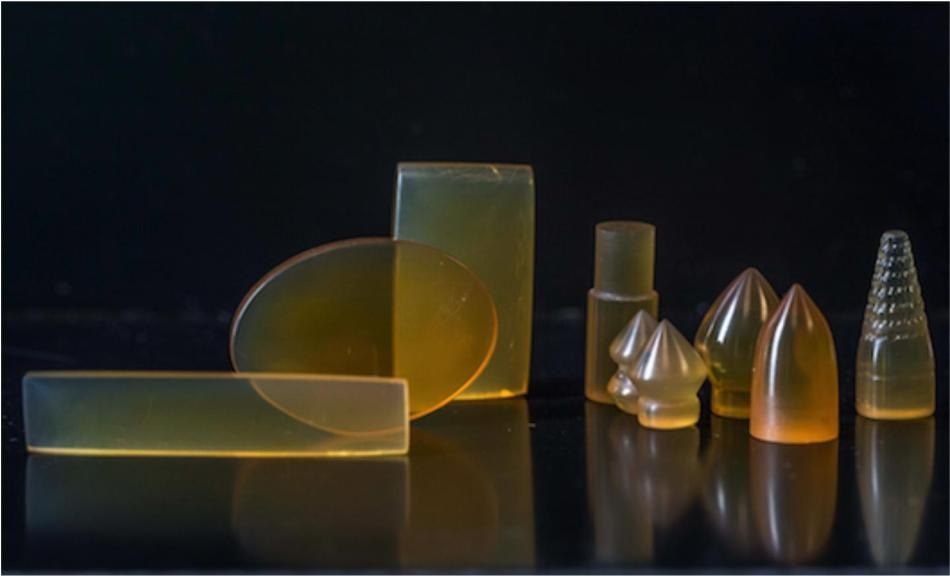Luv this.
Tufts University engineers have created a new format of solids made from silk protein that can be preprogrammed with biological, chemical, or optical functions, such as mechanical components that change color with strain, deliver drugs, or respond to light, according to a paper published online this week in Proceedings of the National Academy of Sciences (PNAS).
Using a water-based fabrication method based on protein self-assembly, the researchers generated three-dimensional bulk materials out of silk fibroin, the protein that gives silk its durability. Then they manipulated the bulk materials with water-soluble molecules to create multiple solid forms, from the nano- to the micro-scale, that have embedded, pre-designed functions.
For example, the researchers created a surgical pin that changes color as it nears its mechanical limits and is about to fail, functional screws that can be heated on demand in response to infrared light, and a biocompatible component that enables the sustained release of bioactive agents, such as enzymes.









Comments are closed.